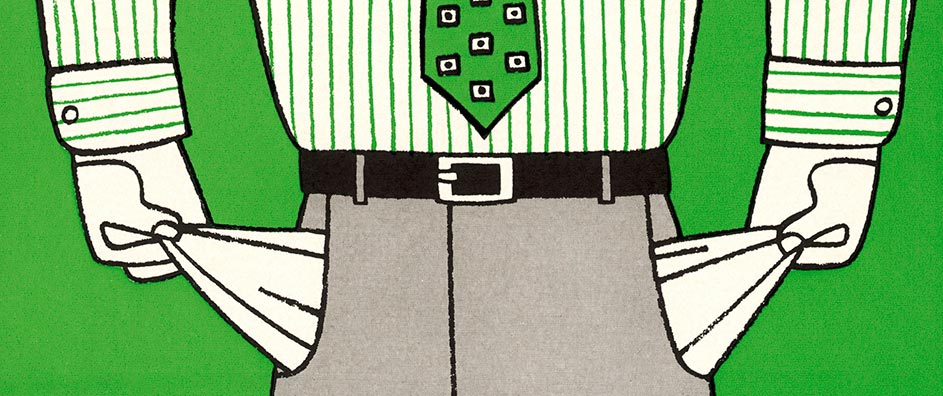The views expressed in our content reflect individual perspectives and do not represent the authoritative views of the Baha'i Faith.
Each one of you must have great consideration for the poor and render them assistance. Organize in an effort to help them and prevent increase of poverty. The greatest means for prevention is that whereby the laws of the community will be so framed and enacted that it will not be possible for a few to be millionaires and many destitute. One of Baha’u’llah’s teachings is the adjustment of means of livelihood in human society. Under this adjustment there can be no extremes in human conditions as regards wealth and sustenance. For the community needs financier, farmer merchant and laborer just as an army must be composed of commander, officers and privates. All cannot be commanders; all cannot be officers or privates. Each in his station in the social fabric must be competent; each in his function according to ability; but justness of opportunity for all. – Abdu’l-Baha, Foundations of World Unity, p. 36.
Baha’is believe that previous efforts to reduce or eliminate the great disparities of wealth and poverty in the world failed because they did not include a strong spiritual component. Instead, they tried to legislate absolute equality among all, which the Baha’i teachings say will never serve as a workable solution to the age-old problem of wealth and poverty:
We see amongst us men who are overburdened with riches on the one hand, and on the other those unfortunate ones who starve with nothing; those who possess several stately palaces, and those who have not where to lay their head. Some we find with numerous courses of costly and dainty food; whilst others can scarce find sufficient crusts to keep them alive. Whilst some are clothed in velvets, furs and fine linen, others have insufficient, poor and thin garments with which to protect them from the cold.
This condition of affairs is wrong, and must be remedied. Now the remedy must be carefully undertaken. It cannot be done by bringing to pass absolute equality between men. – Abdu’l-Baha, Paris Talks, p. 152.
Instead, Baha’is believe, differences in the economic prosperity of people will always exist. The Baha’i teachings say, however, that the great extremes of wealth and poverty should be both legally regulated and voluntarily remediated—the “adjustment in the means of livelihood” that Abdu’l-Baha describes.
In many nations around the world, these kinds of adjustment efforts have already become a reality. Taxation policies in many developed countries often prevent the gross accumulation of obscene wealth among the very rich, for example, and government assistance programs often prevent homelessness and starvation for the very poor. Increasingly in such societies, the extremely wealthy also consciously and voluntarily contribute a significant portion of their wealth toward the efforts of governments and non-profit organizations to alleviate and address poverty, as well.
This kind of joint public/private partnership, agreed upon by the voters, the policymakers they elect and the laws those policymakers agree upon and institute, can only truly work as the Baha’i teachings intend in a future global society with a federalized world government. Otherwise, with different tax rates and social policies in disparate countries, so-called “banking havens” that protect and shelter wealth from legitimate taxation will help the extremely rich avoid their social and spiritual responsibilities.
The essence of the Baha’i spirit is that, in order to establish a better social order and economic condition, there must be allegiance to the laws and principles of government. Under the laws which are to govern the world, the socialists may justly demand human rights but without resort to force and violence. The governments will enact these laws, establishing just legislation and economics in order that all humanity may enjoy a full measure of welfare and privilege; but this will always be according to legal protection and procedure. Without legislative administration, rights and demands fail, and the welfare of the commonwealth cannot be realized. Today the method of demand is the strike and resort to force, which is manifestly wrong and destructive of human foundations. Rightful privilege and demand must be set forth in laws and regulations.
While thousands are considering these questions, we have more essential purposes. The fundamentals of the whole economic condition are divine in nature and are associated with the world of the heart and spirit. This is fully explained in the Baha’i teaching, and without knowledge of its principles no improvement in the economic state can be realized. The Baha’is will bring about this improvement and betterment but not through sedition and appeal to physical force — not through warfare, but welfare. Hearts must be so cemented together, love must become so dominant that the rich shall most willingly extend assistance to the poor and take steps to establish these economic adjustments permanently. If it is accomplished in this way, it will be most praiseworthy because then it will be for the sake of God and in the pathway of His service. For example, it will be as if the rich inhabitants of a city should say, “It is neither just nor lawful that we should possess great wealth while there is abject poverty in this community,” and then willingly give their wealth to the poor, retaining only as much as will enable them to live comfortably. – Abdu’l-Baha, The Promulgation of Universal Peace, pp. 238-239.
















Comments
Sign in or create an account
Continue with Googleor